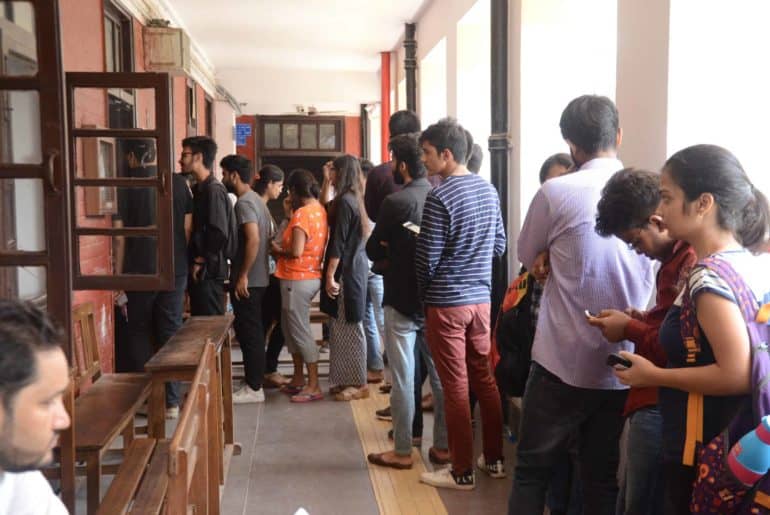The excitement of meeting new people, making friends, and knowing more about university life is what is on the minds of freshers. But it is not the same for people with Social Anxiety Disorder.
Social Anxiety Disorder or SAD, more commonly known as social phobia is one of the most common anxiety disorders. People suffering from this disorder tend to excuse themselves from attending social gatherings, parties, and often find it difficult to meet new people, initiate a conversation and make friends. Socialising is really difficult for them. A lot of times, they come across as shy or even arrogant. In simple words, they might be called an introvert but suffering from SAD is different from being an introvert. The constant worry that is on their mind, the panic attacks that they might get even on the thought of attending a social event is what describes a socially phobic person.
Leaving school and joining college is a big turning point in our lives. However, this brings excitement to some while fear to others. For people suffering from SAD, the fear of coming out of the cocoon of school life and stepping in the big wide world of college is very high. In this new and bigger world, the fear that people face is that they will have to talk to new people, make friends and adjust themselves among a completely new set of people.
On the first day of college, they find themselves in a big pool full of unknown faces. Not knowing whom to talk to, what to say, how to start a conversation is very common. You might find people who are very bubbly and try talking to everyone, as well as those who are introverts and prefers not speaking much. But you should not let this affect you. All you need to know is that it is completely fine to be feeling the way you are feeling and it will get better with time.
A second-year student of Gargi College shared her experience of being a socially phobic fresher. She said, “Before the first day of college, I had thoughts that I would end up feeling isolated. This would freak me out. The fear of talking to new people was constantly on my mind. But I realised that it was not just me. However, one year into college I have a group of five friends, and they are the people I can fall back upon. You need to know that everyone is sailing in the same boat and all your other classmates are also just out of school. It is not easy to step out of your comfort zone but with the right people by your side, it becomes much better. You might not find your set of ‘right people’ on the first day but you will soon find them.”
Finding your best friend on the first day of college is not really possible. Finding your gang takes time. It is very common to feel lonely and not have anyone to talk to. But this does not mean that you will not make friends throughout your college life. You will surely meet people who might turn out to be your friends for life. But do not rush into anything.
Do not feel pressurized and don’t let the situation become a source of worry and panic for you. You might also see some ‘newly become friends’ going out and chilling while you might be sitting in some corner alone trying to avoid social gatherings. Don’t let such things make you feel worried. Get over the thoughts that you will have to be alone forever. Because that is not true and you will find people in whose company you will feel comfortable.
A student of Kamala Nehru College shared her experience and said, “I have always felt petrified in meeting new people. In school, I had a bunch of friends who made me feel comfortable but when I entered college, I was struggling to make friends while I saw some people go out every day with their new friends. This made me anxious. So, I joined them. I did not enjoy but I did this just to make an image in front of some people. But today, when I look back at it, I realise how stupid I was. Today, I have a group of people who make me feel much better. It took me one whole year to find them. Wait for the right time and things will eventually fall in place. You are not as lonely as you think you are.”
It might be difficult for you but you need to realise that social phobia doesn’t have to control you. Be comfortable. Get over the thoughts of embarrassing yourself. Stop thinking about what everyone else thinks and have fun in college.
Feature Image Credits: FTI Portfolios
Priya Chauhan

















